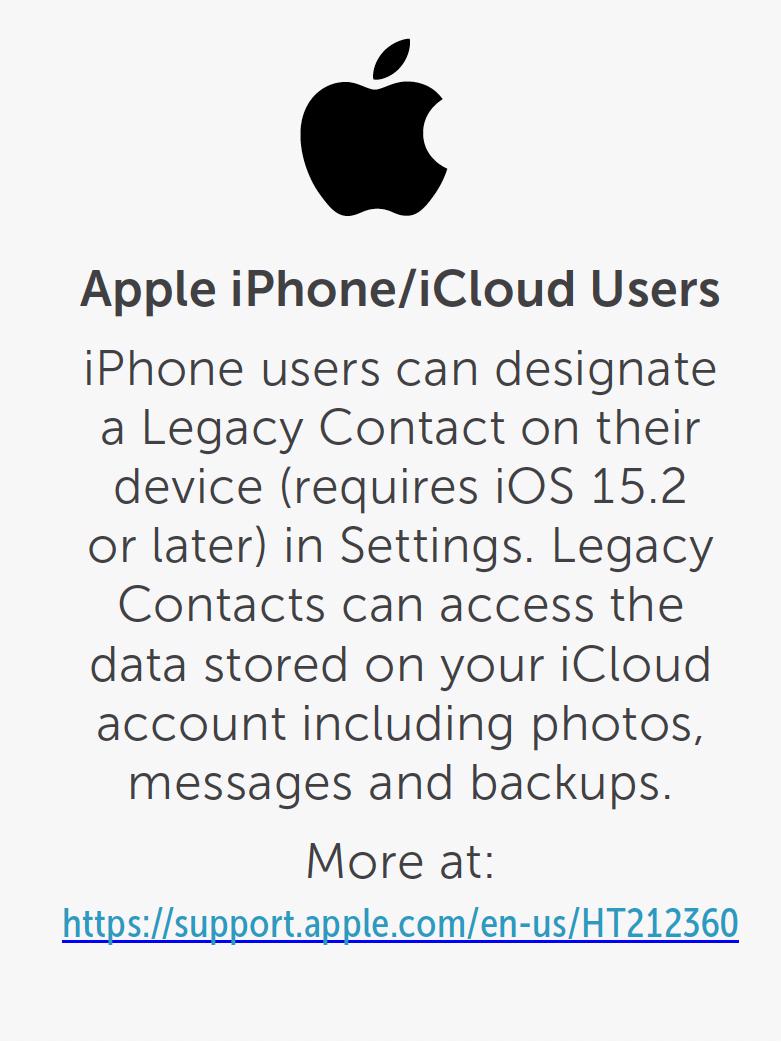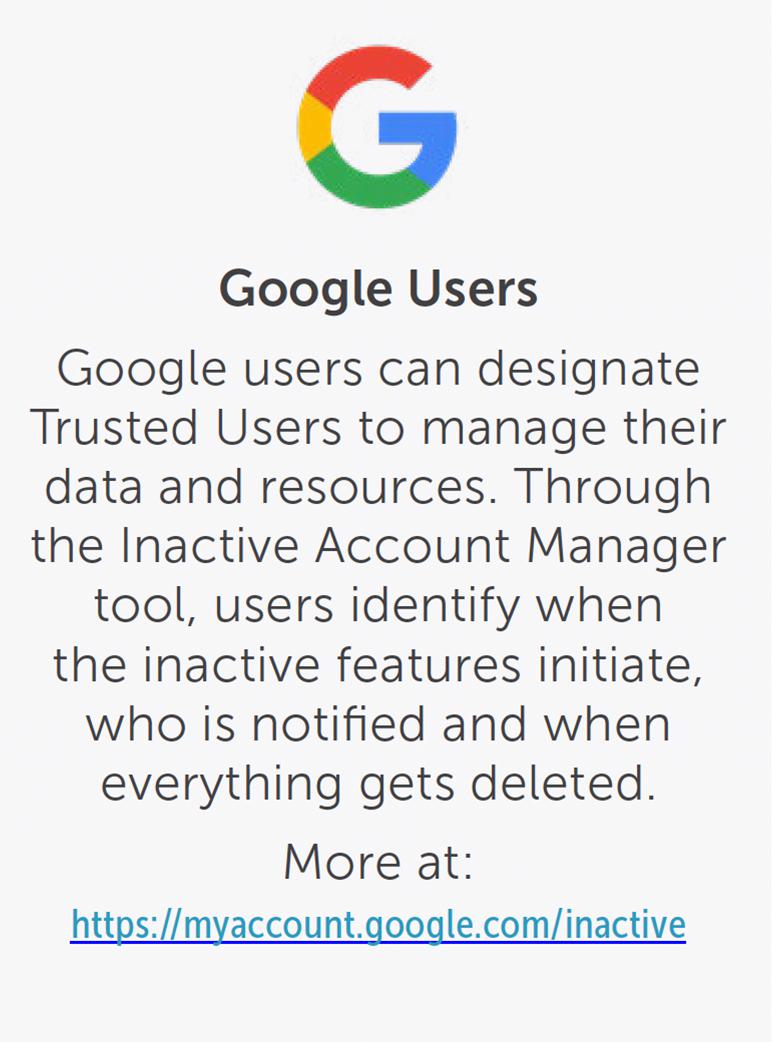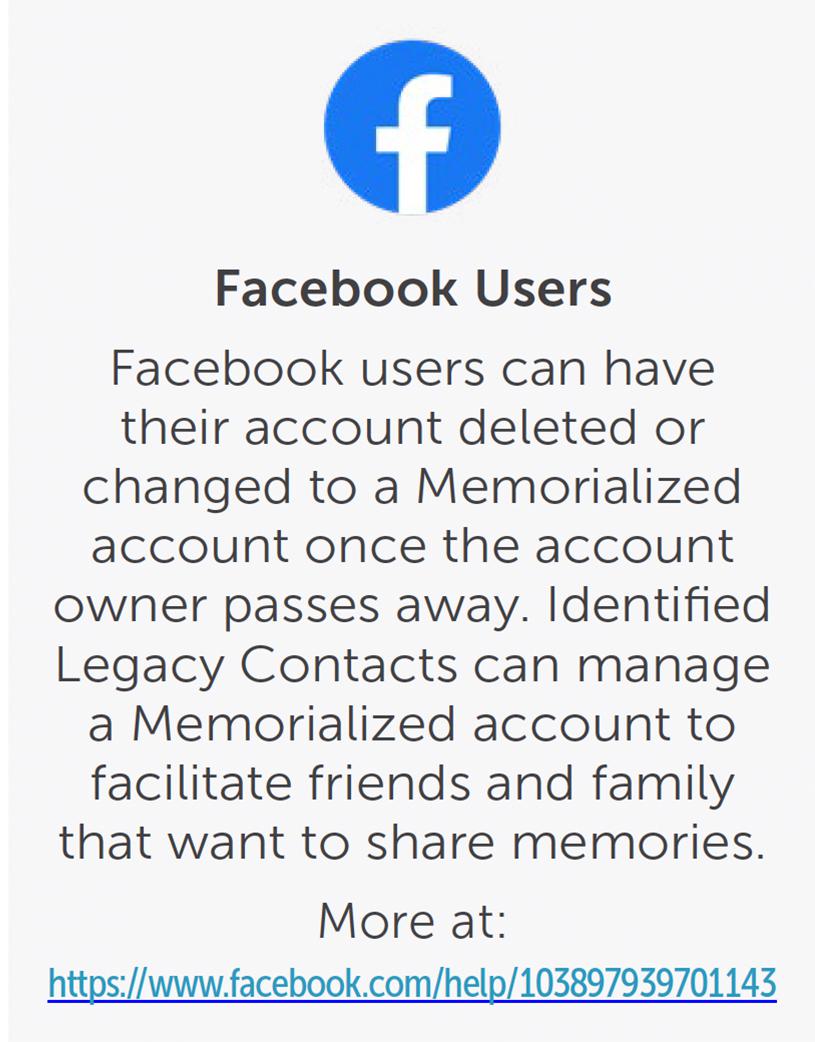June 27, 2022
Managing Your Digital Legacy

We are all familiar with the benefits estate planning can provide. Yet, an often-overlooked part of estate planning is defining how our heirs should manage our digital assets after we pass or become incapacitated.
We are all familiar with the benefits estate planning can provide. By clearly defining how we want our loved ones taken care of after we pass, wills and trusts help ensure a safe and secure transfer of assets and avoid probate issues. Yet, an often-overlooked part of estate planning is defining how our heirs should manage our digital assets after we pass or become incapacitated.
Families must consider what happens to their loved one’s email accounts, airline and hotel points, social media accounts and digital photos, among other digital assets. In most cases, they may discover a password book or file listing them, though the terms of service agreements for digital assets often restrict rights after death. Without proper authorization, this may become problematic in the estate administration process.
In more than 90% of states, the Revised Uniform Fiduciary Access to Digital Assets Act is the primary law that provides estate executors or attorneys access to someone’s online accounts after death or incapacitation. In general, the act creates a tiered hierarchy to access digital assets. The first tier is online tools, which are applied first and given the highest priority. Examples are provided below, and they supersede all other instructions, including those provided in estate planning documents.
 |  | 
|
|---|---|---|
Legal documents would be considered next in the hierarchy. Estate documents, like a will or trust, should include specific language for a trustee, executor or other fiduciary to manage digital assets. If the online tools and legal documents do not outline the person’s wishes, the final tier—the provider’s terms of service agreements—would be considered. Since these terms are usually designed to protect current users, this option shouldn’t be relied on because it gives heirs the least flexibility to manage—and possibly no access to—a user’s digital assets.
Preparation is key to managing your digital legacy. Start by preparing a list of your digital assets. Once you have your list, you can determine which platforms have online tools to help with a smooth transfer. Many of these online tools notify the individuals you name as legacy users, but if not, be sure to let your heirs know your plans for your digital assets. This preparation helps ensure your heirs can properly execute your wishes and in a way that’s convenient. They’ll appreciate the preparation now and after you pass.
For informational and educational purposes only and should not be construed as specific investment, accounting, legal, or tax advice. Certain information may be based upon third party data which may become outdated or otherwise superseded. Third party information is deemed to be reliable, but its accuracy and completeness cannot be guaranteed. The above information contains certain state laws and regulations and are not applicable to every state. Individuals should reach out to their qualified financial professional and legal professional based on his or her own circumstances. Neither the Securities and Exchange Commission (SEC) nor any other federal or state agency have approved, determined the accuracy, or confirmed the adequacy of this article. © 2022 Buckingham Wealth Partners, LLC. Buckingham Strategic Wealth, LLC and Buckingham Strategic Partners, LLC (collectively, Buckingham Wealth Partners). IRN-22-3971
Category
Estate & TrustContent Topics
Stay Connected With Buckingham
Want more resources like this? Click here to receive financial insights, articles, videos and webinar invitations.



